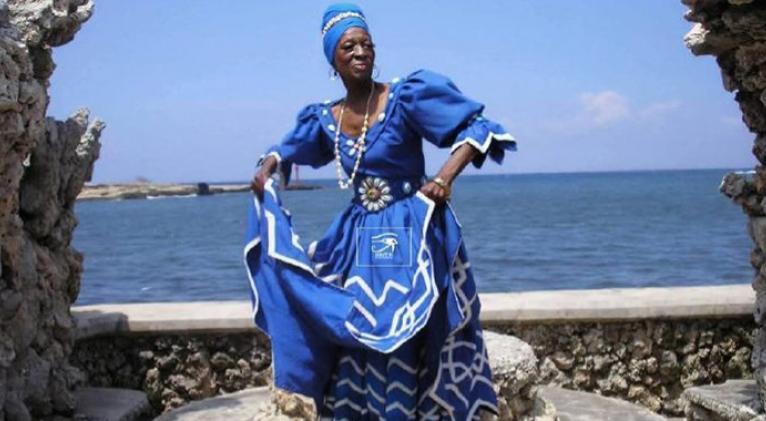Farewell, Dear Zenaida!
especiales

Folkloric-inspired stage dance has lost one of its essential figures: prima ballerina Zenaida Armenteros passed away this Sunday in Havana. A cardinal figure of Cuban culture has passed away, a creator who transformed tradition into an act of constant renewal and unrepeatable authenticity. Her passing, at 94, leaves a void, as she was not only a performer of the highest caliber, but also a teacher of generations and a symbol of Cuban identity on the stage.
Born in the Havana neighborhood of Carraguao, in El Cerro, Armenteros was nourished from childhood by the popular expressions, songs, and dances that would later become the lifeblood of her art. Since the founding of the Conjunto Folklórico Nacional in 1962, she became one of its main pillars, and over time she rose to the highest ranks within the company: First Dancer, First Actress, and First Singer. Her career was inextricably linked to that institution, and through it, she became an ambassador of the richness of Afro-Cuban folklore and of the stage's capacity to dignify it and project it beyond our borders.
Her interpretive flair, her vocal and physical expressiveness, and the symbolic depth of each gesture defined an unmistakable style. With equal intensity, she could embody a Yoruba deity, sing a ritual, or reproduce the cadence of a popular dance. Her precise technique, her stage presence, and her fidelity to her roots made her an emblem of Cuban dance. Her majestic bearing, accompanied by a deep and warm voice, consolidated an artistic personality that transcended time.
Armenteros's dedication was recognized with significant distinctions: the National Dance Award in 2005, the Alejo Carpentier Medal, the Distinction for National Culture, and the status of Meritorious Artist from the UNEAC (National Cultural Association), among many other awards. But beyond the awards, her true legacy lies in the mark she left on the public, her stage colleagues, and the disciples who found in her a model of artistic integrity and a profound connection between tradition and contemporaneity.
With his passing, Cuban culture loses one of its most legitimate and powerful voices. However, his spirit will live on in every performance of the National Folkloric Ensemble, on the stages where Afro-Cuban dance reaffirms its symbolism, and in the new generations who, inspired by his example, understand that cultural memory is also danced.
Translated by Amilkal Labañino / CubaSí Translation Staff














Add new comment